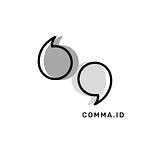Life is full of surprises, does not it?
Often, the changes are inevitable, and they usually happen along with the uncertainties. Uncertainty surely makes us feel uneasy, as we have no power to control it.
Individual lives will be characterized by frequent uncertainty and nov-
elty — Martin and colleagues, 2013
Look at your experience, how many times you have to deal with a new environment/roles/experience? Finishing school or study than being a fresh graduate, finding a job, moving to the company, getting married, being a parent, breaking up, have a new partner, moving house, quitting a job, and other situations.
How does it feel to get into the new environment? How does it feel when deciding to take a further step? How does it feel when suddenly be in unfamiliar situations?
Confused, scared, anxious, panic, enthusiastic, curious. Such mixed feelings, huh?
So, how to calm ourselves?
Adaptability is one of the aspects that play an essential role. American Psychological Association (APA) defined adaptability as an individual capacity to respond appropriately toward changes.
Martin and colleagues (2013) divide adaptability into three types:
- Cognitive: changing the way of thinking so that the individual could deal with changes and uncertainties. For example, when someone just breakup, she might think “maybe he and I do not feel compatible with each other” so that she can move on.
- Behavioral: modifying behavior (could be the intensity, level, frequency, and other related factors). For example, a worker moves into a new workspace, so he is lowering his voice when talking as he works on an open space with other officers (not in a private room).
- Affection: changing the tendency or emotional response. For example, a student fails in an exam; she then says to herself, “I am disappointed right now, but I won’t dwell on it for too long.”
Adaptability is related to personality disposition but does not mean it cannot be improved. Adaptability could be enhanced by:
- Brace yourself to try. There might be a situation when you fail on doing a plan A, then you learn from it. You can try another approach and do plan B after implementing the lesson-learned from your previous failure.
- Meet many people, talk to many people, listen to others’ stories. Then you can learn different perspectives about something.
- Take the silver linings.
- Be curious. Learning could happen anywhere, anytime. It also can come from yourself, with all of your experiences.
- Use the helicopter view. Try to understand the bigger picture and look from different sides of the story.
Then? The final step to be done and should be implemented in the endpoint of anything is acceptance.
No matter hard we try to avoid the changes, it always finds the way to come over. So, instead of choosing to flee, why not equip ourselves with the necessary weapons to fight it back and go through the anxious moments calmly?
Reference:
- Martin, A.J., Nejad, H.G., Colmar, S., Liem, G.A.D. (2013). Adaptability: how students’ responses to uncertainty and novelty predict their academic and non-academic outcomes. Journal of Education Psychology. 105(3), 728–746.
- Peterson, C., & Seligman, M. E. P. (2004). Character strengths and virtues: A handbook and classification. American Psychological Association; Oxford University Press.
